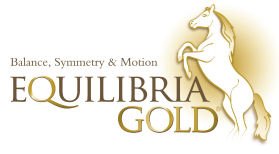
Contraindications are reasons not to carry out medical treatment.
Equine massage is a non-invasive form of therapy and therefore is usually safe to be carried out on most healthy, sound horses. However, it is important to understand when equine massage may not be appropriate or the best form of treatment for a horse to avoid causing further illness or discomfort.
A contraindication, in medicine, is a condition that serves as a reason not to take a certain medical treatment due to the harm that it would cause the patient. Contraindication is the opposite of indication, which is a reason to use a certain treatment.
There are two types of contraindication:
LOCAL: where specific areas of the body are affected and as a result, the local area should be avoided.
SYSTEMIC: where the effect relates to the entire horse and as a result, no part of the horse should be massaged.
Local contraindications to massage
-
The wound could become infected or more open and inflamed and could be painful to the touch.
-
The area will be sore to the touch and equine massage to the area could cause discomfort and further inflammation
-
May cause irritation and be too painful to receive equine massage
-
These could be something more serious and equine massage could worsen the symptoms or spread a potential infection or disease
-
Cryotherapy (application of extreme cold) should be carried out for 72 hours first. The area of acute trauma will be sore and painful to the touch plus further damage could be caused to the already damaged underlying blood vessels.
-
Equine massage could spread the infection to other areas as well as leave the masseur open to possible infection. Veterinary advice should be first sought.
-
Hernias often require surgery, therefore immediate veterinary advice should be sought.
Systemic contraindications to massage
-
Signs include rapid breathing, shaking/shivering, weak pulse, and pale mucous membrane. Equine massage could worsen the effects of shock plus the horse will be stressed and possibly sweating and will likely need veterinary treatment.
-
Equine massage affects blood vessels plus the body temperature may also have dropped and massage could further exacerbate this.
-
Mild: 102°F/39°C - Moderate: 104°F/40°C - High: 106°F/41°C)
When suffering from fever, the body is trying to isolate and expel an invader or some description. Equine massage increases overall circulation and therefore could work against the body’s natural defences.
-
Signs include lethargy, fatigue and lack of interest in his/her surroundings. Fatigue can be caused by various things such as heat, workload, or iron deficiency and equine massage could worsen the effects.
-
These are potentially cancerous, and if so equine massage could spread disease around the body. Veterinary advice should be sought first.
